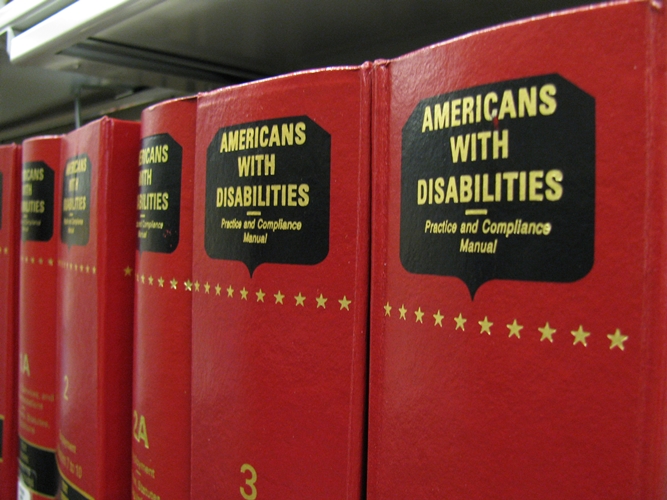Is Your Website ADA Compliant?

One of the risks of operating a business open to the public is being sued under the Americans with Disabilities Act (“ADA”) for failing to remove physical barriers that make a business or building inaccessible to a person with disabilities. Complaints about ramps, sinks, seating, countertops, and the like are not unusual in these types of lawsuits. A new and more problematical issue under the ADA is rapidly emerging in the form of website accessibility lawsuits being filed against places of public accommodation, which includes leasing entities, multi-family apartment buildings, and any other establishment open to the public. For those businesses involved in the real estate industry, violations could also implicate the Federal Fair Housing Act and the New Jersey Law Against Discrimination.
For example, in a case brought in Florida, the Plaintiff, who is visually impaired, was a prospective student interested in attending Keiser University by taking classes at its Daytona Beach campus location. The Plaintiff allegedly called the Defendant in order to inquire about admission to Keiser University, requirements for admissions, available courses, and accommodations for his disability. The Plaintiff claimed that the Defendant's representative failed to fully assist him and referred him to its website. The Plaintiff apparently attempted to utilize the Defendant's website using screen reader software, but because the software was unable to access various electronic documents on the website, the Plaintiff states that he could not find out information necessary to apply to Keiser; research available degree types, pre-requisites, and course descriptions; view the course catalog; and view available accommodations that Keiser could offer him for his disability.
Defendant filed a motion to dismiss on the grounds that Plaintiff had failed to state an ADA claim.
The Court granted the motion. It held that allegations that the plaintiff could not learn about the university were insufficient, and that instead he had to plead facts sufficient to demonstrate that the website impedes a disabled person's full use and enjoyment of the brick-and-mortar public accommodation. Plaintiff did not allege, for example, that he could not apply to the university, pay tuition, or use the student portal.
For a non-physical place such as a website to be considered a place of public accommodation, it must, therefore, have a sufficient nexus to a physical structure that constitutes a public accommodation in order to be covered by the ADA.
The typical relief available in an ADA case is injunctive relief; that is, the court orders the offending party to bring itself into compliance. The risk for most defendants, however, in defending cases of this type is being hit with the plaintiff’s attorney’s fees. In another recent Florida case, the defendant was sued for lack of website accessibility. In addition to ordering the defendant to undertake several steps to bring its website into compliance, the court also awarded the plaintiff more than $100,000 in attorney’s fees. As mentioned above, real estate businesses may also be subject to the Fair Housing Act and related state statutes that carry their own penalties.
To add to the concern, there are currently no definitive guidelines for companies that wish to bring their websites into compliance. There are, however, many websites and articles available to assist companies who wish to protect themselves as much as possible, given the lack of any governmental guidance on how to do so. Steps businesses may take include the following:
- Audit your website for accessibility. Various courts have approved the WCAG-2.0, Level AA standards with respect to website accessibility.
- Make certain any web designers you use are up to date on commonly-applied accessibility standards and have the requisite ability to implement them and to review accessibility regularly.
- Review your vendor agreements with counsel and include in them responsibilities for compliance updates.
- Keep current on what courts expect of business owners in this regard.
- Talk to your insurance broker regarding any available coverages you may be missing that would protect your business in the event of a claim.
- Respond promptly to any claim letter received from a potential claimant or his or her attorney.
The law right now is in flux as we await further direction from the Department of Justice in the form of definitive regulations. In the meantime, prudent business owners will take a proactive approach to protect themselves and their businesses from becoming a target of some quite expensive litigation.




